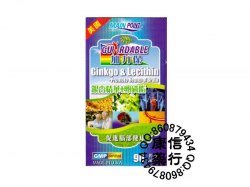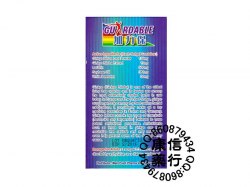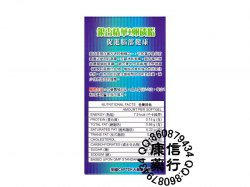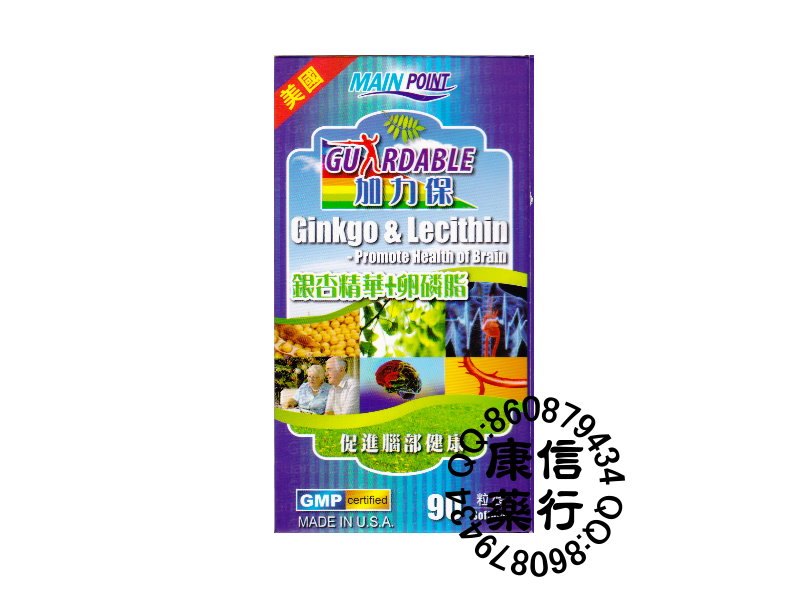
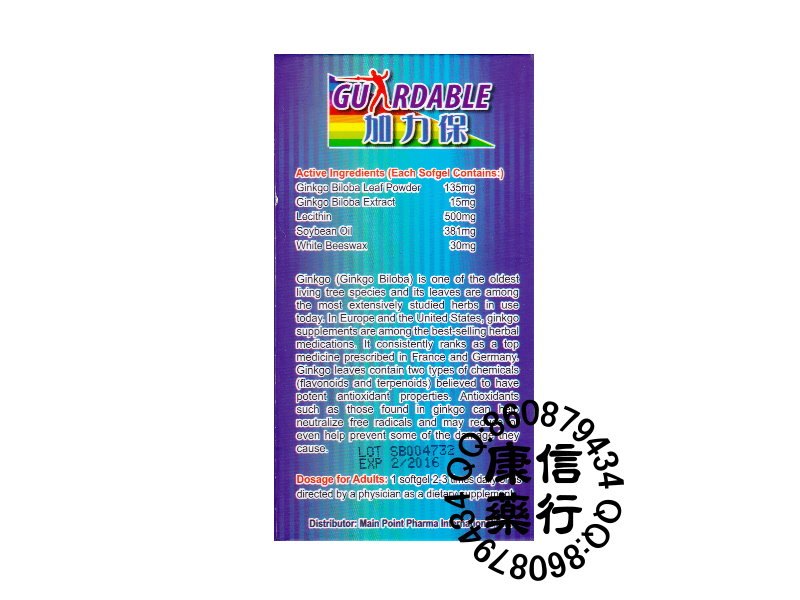
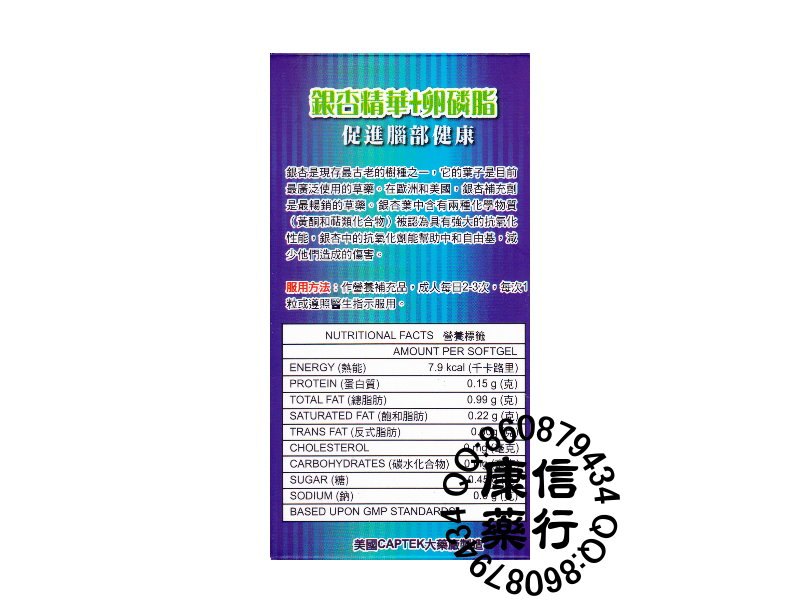
Ginkgo Lecithin
Model: WZQ0202
Product Description
Ginkgo & Lecithin
Active Ingredients (Each Sofgel Contains:)
Ginkgo Biloba Leaf Powder 135mg, Ginkgo Biloba Extract 15mg, Lecithin 500mg,
Soybean Oil 381mg, White Beeswax 30mg
Overview: Ginkgo (Ginkgo Biloba) is one of the oldest living tree species and its leaves are among the most extensively studied herbs in use today. In Europe and the United States, ginkgo supplements are among the best-selling herbal medications, it consistently ranks as a top medicine prescribed in France and Germany.
Ginkgo has been used in traditional medicine to treat blood disorders and enhance memory. Scientific studies throughout the years have found evidence that supports these claims. Ginkgo may be helpful treating dementia (including Alzheimer's disease) and intermittent claudication, or poor circulation in the legs. It also shows promise for enhancing memory in older adults. Laboratory studies have shown that ginkgo improves blood circulation by dilating blood vessels and reducing the stickiness of blood platelets.
Ginkgo leaves contain two types of chemicals (flavonoids and terpenoids) believed to have potent antioxidant properties. Antioxidants are substances which scavenge free radicals — compounds in the body that damage cell membranes, tamper with DNA, and even cause cell death. Free radicals are believed to contribute to health problems including heart disease and cancer as well as Alzheimer's disease and other forms of dementia. Antioxldants such as those found in ginkgo can help neutralize free radicals and may reduce or even help prevent some of the damage they cause.
Medicinal Uses and Indications:
Based on studies conducted in laboratories, animals, and humans, ginkgo is used for the following:
Dementia and Alzheimer's disease
Ginkgo is widely used in Europe for treating dementia. It was first uspd because it improves blood flow to the brain. Now further study suggests it may directly protect nerve ceils that are damaged in Alzheimer's disease. A number of studies have found that ginkgo has a positive effect on memory and thinking in people with Alzheimer's or vascular dementia.
Clinical studies suggest that ginkgo may have the following benefits for people with Alzheimer's disease:
Improvement in thinking, learning, and memory (cognitive function)
Improvement in activities of daily living
Improvement in social behavior
Fewer feelings of depression
Several studies have found that ginkgo may work as well as prescription Alzheimer's medications in delaying the symptoms of dementia. Intermittent Claudication: Because ginkgo improves blood flow, it has been studied in people with intermittent claudication, or pain caused by reduced blood flow to the legs. An analysis of eight studies revealed that people taking ginkgo tend to walk about 34 meters farther than those taking placebo. In fact, ginkgo has been shown to be as effective as a prescription medication in improving pain-free walking distance. Glaucoma: One small study found that people with glaucoma who took 120 mg of ginkgo daily for 8 weeks had improvements in their vision. Lecithin: Lecithin is a lipid that consists mostly of choline, but also includes inositol, phosphorus, and linoleic acid. Lecithin helps to improves brain function. This nutrient is essential to every living cell in the human body.
Clinical studies suggest that Ginkgo Biloba+Lecithin may provide the following benefits:
Improve blood circulation (including brain & heart)
Prevent stroke
Prevent cerebral hemorrhage
Release pain of dizziness & Headache
Prevent Alzheimer's disease
Prevent cell-damaging from free radicals
Maintain healthy memory function associated with again
Maintain peripheral vascular circulation
Prevent diabetic retinopathy
Improve cognitive function
Reduce feelings of depression
Improve tinnitus (ringing in the ears) and vertigo
Dosage for Adults: 1 softgel 2-3 times daily or as directed by a physician as a dietary supplement.

